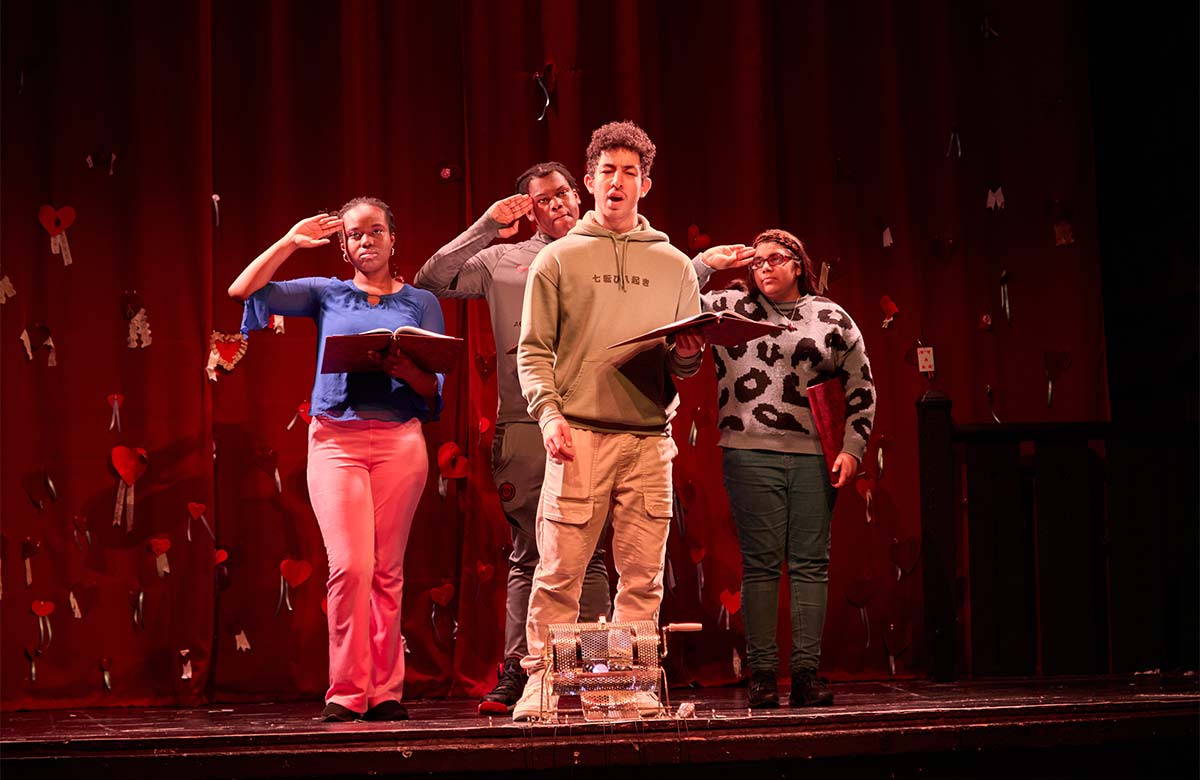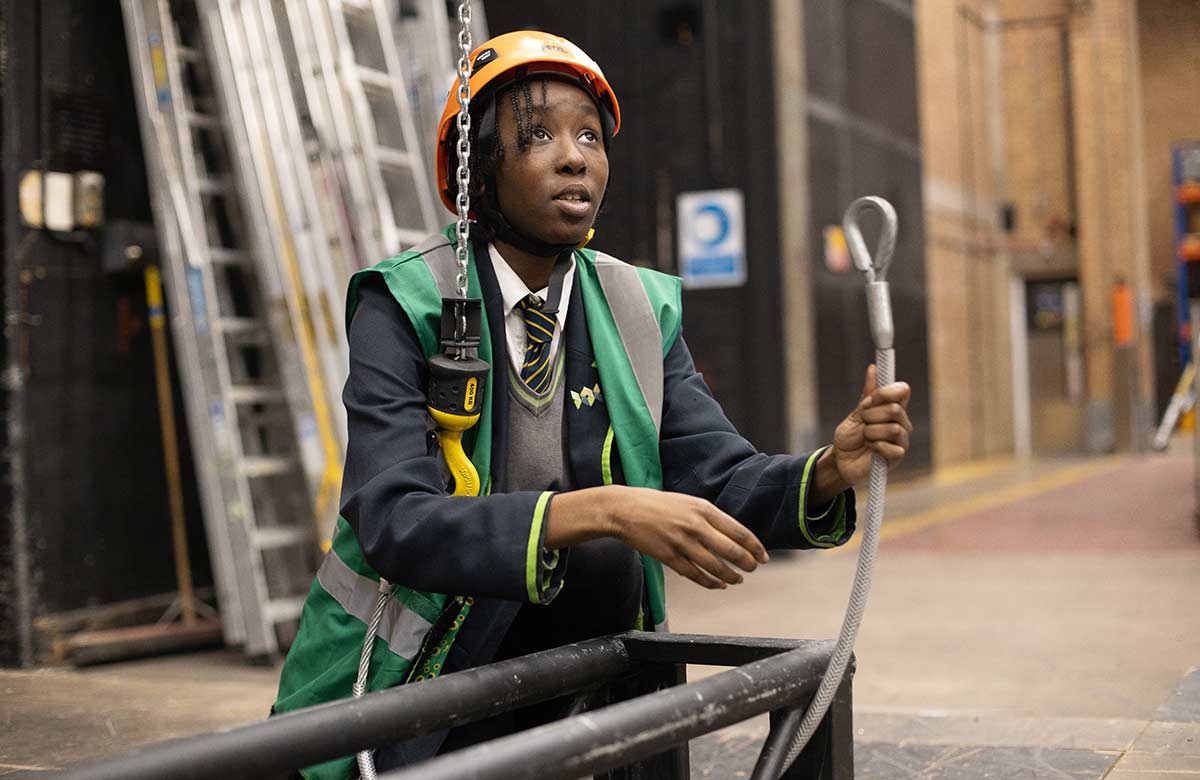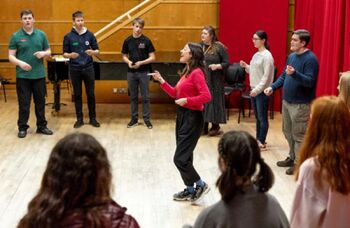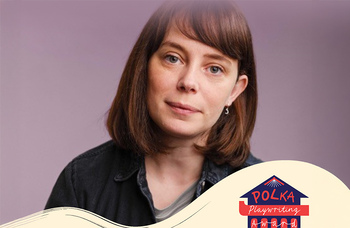Echoes Through Time: new free-to-perform play puts the story of care centre stage
Created by children’s charity Coram, free-to-perform play Echoes Through Time: The Story of Care charts the journey of nearly three centuries of young people in care, beginning with London’s Foundling Hospital in the 1739, from the perspective of the real people who lived in the system
The 18th century may seem like a long time ago but, as a new free-to-perform play shows, when it comes to young people in care, the resonances between then and now are striking.
In autumn 2023, a group of care-experienced young people came together at Coram, the UK’s first and longest-running children’s charity, to create a play. Drawing on their own experiences, the group explored similarities and differences between life in care today and in the 18th and 19th centuries at London’s Foundling Hospital.
Founded in 1739 by philanthropist Thomas Coram, the Foundling Hospital was a home for children whose mothers were unable to care for them. His vision was that the children should be cared for, educated and apprenticed so that, ultimately, they would be useful members of society.
Along with writer Brian Mullin and director Vicky Moran, the group delved into the Foundling Hospital Archive, the rich, vast collection of handwritten records documenting the early history of the charity now known as Coram.
‘The two periods and the systems are very different, but many of the feelings are the same. Young people from the past can have their voices heard through the imaginations and experiences of the young people of today’ – Brian Mullin, writer
The result was Echoes Through Time: The Story of Care, a play that interweaves the voices of young people in the modern care system with those of the first children ever to be ‘in care’. Now, Coram has made the play script, along with an extensive resource pack, freely available online for schools, youth groups and theatre companies to perform.
The theatremaking project was part of Coram’s Voices Through Time: The Story of Care programme, made possible by the National Lottery Heritage Fund. Mikey Lynam, creative delivery coordinator at Coram, explains: “It was vital that care-experienced young people were central to the Voices Through Time programme and telling stories of their history.”
Continues...

Alongside digitising and transcribing 100,000 pages from the Foundling Hospital Archive, Coram ran a series of creative projects that included writing, filmmaking, art and spoken word. “We wanted to really engage young people in uncovering stories in the archive,” says Lynam.
The play has been particularly successful, he adds, because it “allowed young people who have experience of the care system to be able to see themselves and their lives reflected back”.
In workshops, Mullin and Moran encouraged the participants to improvise and “to be on their feet, creating scenes, responding to prompts”, says Lynam. “Brian would capture all this and it became the basis of the script.”
Included in the play are real-life stories of some of the 27,000 children who were admitted to the Foundling Hospital during its two centuries of operation: Augustus Browne, proud of the fact that the hospital taught him to read and write at a time when literacy levels were low; Eleanor Weathers, who sustained a disability as an apprentice but found employment and a husband at the hospital as an adult.
‘By putting the present-day care system alongside the historical one, it enables audiences to ask questions about how much things have changed and how much they haven’t’ - Mikey Lynam, creative delivery coordinator at Coram
Mullin, who has extensive experience working with community groups and using performance as a means for social change, explains that it was important to have the two time periods reflected in the play. “The two periods and the systems are very different, but many of the feelings are the same. Young people from the past can have their voices heard through the imaginations and experiences of the young people of today.”
Lynam adds: “By putting the present-day care system alongside the historical one, it enables audiences to ask questions about how much things have changed and how much they haven’t. To ask: ‘Where are the possibilities for change in the future?’”
After several months of devising, writing and bringing the production together, Echoes Through Time premiered at Hoxton Hall in London on April 4, 2024. “It was an enormous success,” says Lynam. “We sold out the main hall. The venue itself – which is an old music hall – really transported the audience back in time. You had these modern young people on stage navigating the space between then and now.”
The reactions were overwhelming. The performers reflected on how much it meant to them to be involved: “I’m an actor and I’ve been in some other Voices Through Time projects, so I wanted to be involved,” says 19-year-old Keziah-Kae Mensah. “The storyline touches close to home. Plays aren’t something that we can always relate to as young, care-experienced people, but this was really relatable to us. There are messages the play helps get across. Just because we grew up in care doesn’t mean that we don’t have a family. You can find family in anyone and anywhere.”
Continues...

But the performance had a profound impact on audience members, too, who described the play as “engaging” and “thought-provoking”. “It was real stories told by real people,” said one person. “Obviously, the cast was acting but there was also a level of authenticity at the base of it.”
“I found it really moving.” said another. “The way the cast all interacted with each other was playful and alive. I was in tears at the end.”
Another said: “I didn’t know about the history of care and I liked learning about it from the perspectives of people who went through the care system, past and present.”
Following that performance, Coram is keen to make sure the play and its messages live on. To that end, the charity has made it freely available online alongside extensive resources. There’s a production guide, with tips on characters, staging and props; there’s a fact sheet about the Foundling Hospital with biographies of the Foundlings and mothers who appear in the play; there’s an introduction to the present care system, exploring issues that children and young people face today. The play itself was written to be flexible for different company sizes and ages.
The story of care started almost 300 years ago in a single institution in London. Now, three centuries later, Coram wants to spread the history of the Foundling Hospital and the experiences of people in care far and wide. “We want to encourage as many people as possible to perform this play. We want them to read the resources, to have discussions – whether that’s in classrooms or youth groups or drama schools. Maybe you stage the whole play, or read portions of the script, or just engage with the resources. We don’t want this to be the end of the story.”
Download the script, read the resources, and watch the videos here: Echoes Through Time: The Story of Care
Most Read
Across The Stage this weekYour subscription helps ensure our journalism can continue
Invest in The Stage today with a subscription starting at just £5.99









